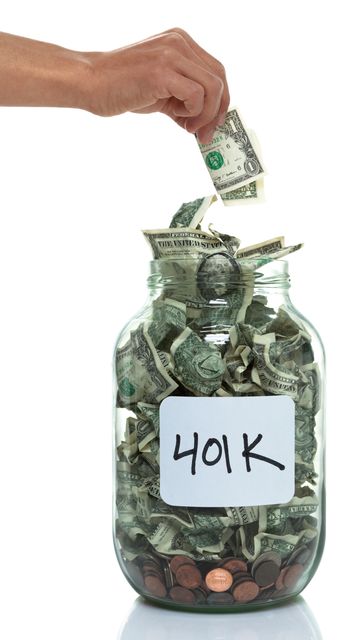“ Some pre-retirees can come out ahead by buying more equities in their taxable brokerage account. ”
Some money management truths are self-evident: Always set aside enough cash for emergencies. Diversify your portfolio. And maximize your contributions to tax-advantaged accounts such as a 401(k) or IRA.
That last one is open to debate. Even if you like the idea of cutting this year’s tax bill by funding your 401(k), you will eventually owe the federal government some money — and probably more than you expect.
“There’s a general consensus that tax rates will not be going down in the future,” said Craig Eissler, a Houston-based certified financial planner. Nevertheless, he urges clients in a high tax-bracket to reduce their current taxable income by maximizing tax-deferred contributions. “Then in retirement, you can pull out money from different buckets, like a taxable brokerage account or trust, not just from your tax-advantaged account,” he said.
Experts warn that tax rates will need to increase at some point to plug the federal budget deficit and fund Medicare and Social Security. Pre-retirees who diligently max out on their 401(k) contributions every year will probably face higher ordinary income tax rates in the future.
The likelihood of steeper tax rates in the coming decades might lead you to rethink traditional advice to stash every dollar you can into tax-deferred vehicles. While it’s a great deal if your employer matches your contributions, there are some situations where it’s actually prudent not to max out your 401(k).
For example, some pre-retirees can come out ahead by buying more equities in their taxable brokerage account rather than maximizing their annual 401(k) and IRA contributions. Many variables come into play, such as their current tax bracket and investment savvy.
“For clients in their late 40s and 50s, we sometimes limit the amount they put into their 401(k),” said JR Gondeck, an adviser in Boca Raton, Fla. “Instead, we shift some of that money into a [stock] index fund within a taxable brokerage account. A lot of people are surprised when we do that. It’s counterintuitive.”
Gondeck tells clients that they might expect to pay roughly 40% in taxes when they withdraw their 401(k) funds in retirement. But if current capital gains rates remain in place, they might pay much less — perhaps 20% in tax — when they sell equities many years from now.
“It’s a big difference between being taxed at [ordinary] income rates and capital gains rates,” Gondeck said. “At a younger age, you’re taught to defer, defer, defer. But as you get into your late 40s, you want to balance it off with capital gains so that you don’t get hit with huge tax bills” in retirement.
Balance plays a key role in other ways. Consider how pre-retirees divvy up their funds between tax-advantaged and taxable accounts.
Ideally, high earners fund their tax-deferred accounts while putting another bucket of money to work in their taxable bank- and brokerage accounts. But sometimes, the two buckets can get out of kilter.
“It’s not that common, but some people get way overfunded in their IRAs and don’t have much in their taxable accounts,” said Patrick Dinan, a certified financial planner in Glendale, Calif. “If you have 90% of your net worth tied to your 401(k), then at age 70, you’ll be a tough spot. You will have a big tax burden.”
Also read: That 401(k) match isn’t just free money, 3% could buy you two years of retirement
Plus: We know not to take money early from a tax-deferred retirement account. So why do we do it?








